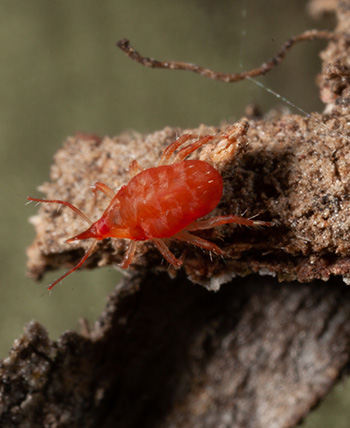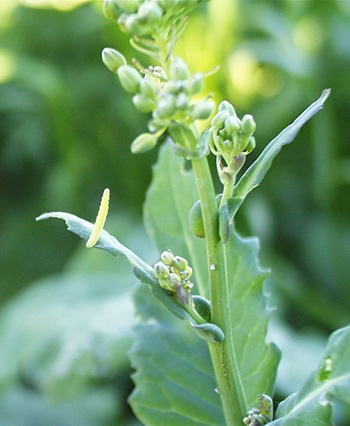Novel suppression and resistance management of invertebrate pests
Investment
Novel suppression and resistance management of invertebrate pests
This investment aims to assist the Australian grains industry transition to more sustainable and predictive approaches for the management of pests, through innovative solutions that will decrease disease transmission, improve chemical stewardship and effectively forecast pesticide resistance issues.
The Australian Grains Pest Innovation Program (AGPIP) brings together researchers and extension specialists from The University of Melbourne and Cesar Australia to develop novel pest suppressive technologies for the Australian grains industry. The Program is undertaking research and development activities that embrace endosymbiont technology; predictive forecasting, diagnostic tools and mechanisms of insecticide resistance; knowledge to reduce chemical impacts on beneficial insects; and other innovative ways to manage grains pests. The extension component of the Program is focused on translating the Program's research outcomes into grower guides and other tools to support industry adoption of sustainable and effective pest management practices.
- Project start date:
- 20/06/2019
- Project end date:
- 30/04/2024
- Crop type:
-
- Wheat, (Cereal)
- Barley, (Cereal)
- Oats, (Cereal)
- Canola/Rapeseed, (Oilseed)
- Organisation
- The University of Melbourne
- Region:
- North, South, West
- Project status
-
Completed
GRDC News
Update papers
- 10 Feb 2025, Integrating parasitoid augmentation and selective pesticides for sustainable aphid management - GRDC
- 21 Feb 2023, Minimising the impact of insecticides on beneficials in broadacre crops - GRDC
- 21 Feb 2022, The impact of insecticides and miticides on beneficial arthropods in Australian grains - GRDC
- 21 Feb 2022, Managing what might bug you this season - GRDC
- 11 Aug 2021, Insecticide resistance in the green peach aphid (Myzus persicae) and redlegged earth mite (Halotydeus destructor) in Australia – current status and updated management strategies - GRDC
Podcasts
Beneficials Chemical Toxicity table: Use it or lose ‘em - GRDC
31 Oct 2023Until recently there was no scientifically proven guide to help growers monitor the impacts of commonly used insecticides on beneficial...

Natural enemies: beneficials, insect friends with benefits - GRDC
03 Oct 2023AGPIP explores Australian grain crop insects for eco-friendly pest control using endosymbionts at Melbourne Uni's PEARG to boost beneficial insect...

Endosymbionts – game changing bacteria in insect species - GRDC
25 Jul 2023As part of the Australian Grains Pest Innovation Program’s (AGPIP) blue sky approach to tackling insect pests in Australian grain...

Novel solutions for pest management - GRDC
18 Apr 2023GRDC has invested in the Australian Grains Pest Innovation Program (AGPIP) a joint initiative with the University of Melbourne and...

Videos

Beneficials Chemical Toxicity Table: Use it or lose 'em
23 Jan 2024Dr Rosie Knapp talks about the ‘Beneficials Chemical Toxicity Table’ - a guide that assists growers and advisers to protect the beneficial insects that help...
Resources

Paddock Practices: Pest control with precision – the Beneficials Chemical Toxicity Table, a decision-support tool - GRDC
Insecticides are a crucial tool, yet there is an increasing dialogue about the significance of beneficial insects, which play a vital role in keeping pest populations below economically damaging levels.

Paddock Practices: Managing diamondback moth - GRDC
Diamondback moth numbers have been found above economic threshold – damaging canola in some eastern and northern grainbelt areas of Western Australia


